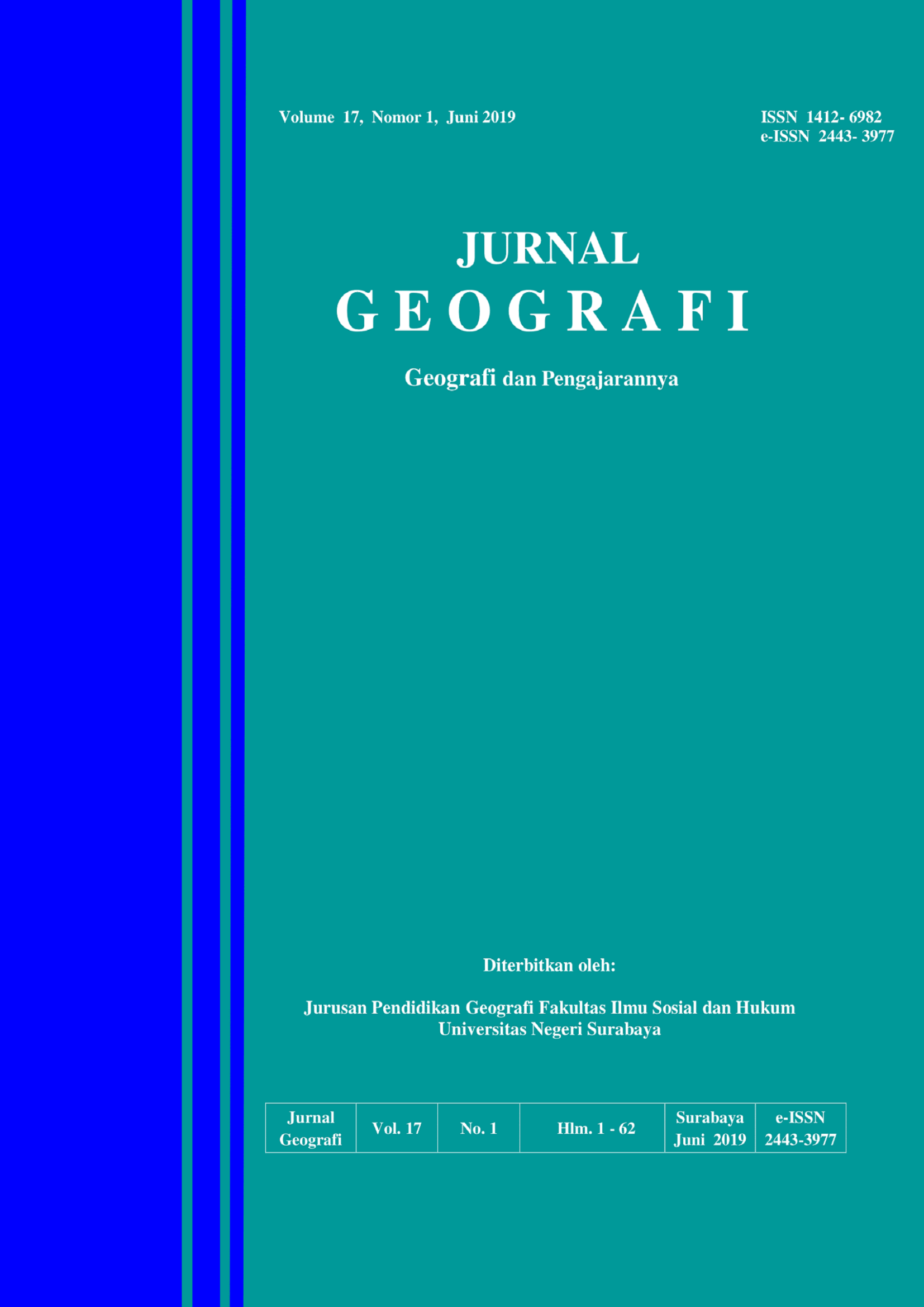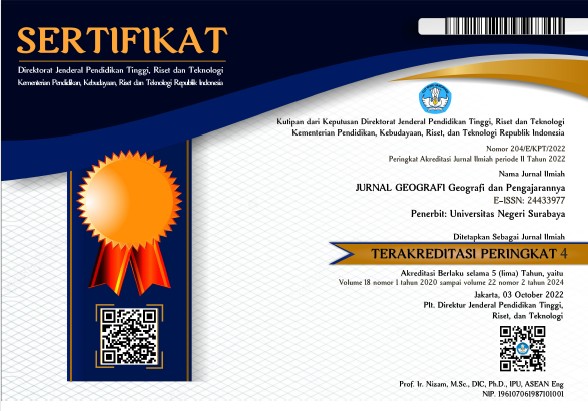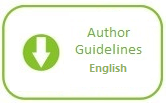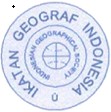PENDEKATAN PEMBELAJARAN RISET PENDIDIKAN LINGKUNGAN
DOI:
https://doi.org/10.26740/jggp.v17n1.p37-54Keywords:
Pembelajaran Riset, pendidikan lingkungan, sikap lingkungan, permasalahan dan solusi lingkunganAbstract
Abstrak: Penelitian ini bertujuan untuk menyelidiki pengaruh pembelajaran riset terhadap sikap peduli lingkungan mahasiswa. Penelitian dilakukan terhadap mahasiswa yang mengikuti program pendidikan lingkungan, perubahan sikap lingkungan dilakukan dengan mengembangkan pembelajaran riset. Metode yang digunakan dalam penelitian ini adalah mixed methods kuantitatif dan kualitatif. Mahasiswa diberikan informasi konsep dan degradasi lingkungan serta pembelajaran riset, mahasiswa membuat kelompok dan menyusun proposal sesuai tema kajian. Mahasiswa melakukan penelitian untuk pengumpulan data serta informasi yang kemudian disajikan dalam bentuk infomasi baik laporan dan artikel ilmiah. Pembelajaran riset disajikan dengan tujuan mengembangkan berpikir ilmiah mahasiswa. Hasil penelitian menunjukkan tidak ada perbedaan gender terhadap sikap peduli lingkungan karena pembelajaran riset memiliki dampak yang positif. Mahasiswa memberikan peningkatan kreativitas, pengetahuan. manfaat, dan berpikir kritis mahasiswa melalui kegiatan penelitian, diskusi, dan brainstorming. Praktik pembelajaran riset lebih membantu dalam mendeskripsikan permasalahan lingkungan dan pengambilan solusi terbaik bagi mahasiswa.
Downloads
References
Al-Balushi, Sulaiman M & Al-Aamri, Shamsa S.(2014). The Effect of Environmental Science Projects on Students Environmental Knowledge and Science Attitudes, International Research in Geographical and Environmental Education, 23 (3), 213-227.
Al-Maktoumi, Ali, Al-Ismaily, Said, & Kacimov, Anvar.(2016). Research Based Learning for Undergraduate Students in Soil and Water Sciences: a case Study of Hydropedology in an Arid Zone Environment, Journal of Geography in Higher Education, Vol.40, 1-19.
Baldwin, G.(2005). The Teaching Research Nexus: How Research Informs and Enhances Learning and Teaching in University of Melbourne. Melbourne: The University of Melbourne.
Balim, A.G.(2013). The Effect of Mind Mapping Applications on Upper Primary Student Success and Inquiry Learning Skills in Science and Environment Education. International Research in Geographical and Environmental Education, 22 (4), 337-352.
Barnett, M., Vaughn, M.H., Strauss, E., and Cotter, L. (2011). Urban Environmental Education: Leveraging Technology and Ecology to Enggage Student in Studying the Environment, International Research in Geographical and Environmental Education, 20 (3), 199-214.
Baxte, P and Jack, S.(2008). Qualitative Case Study Methodology. Study Design and Implementation fo Noice Researchers. The Qualitative Report, 13 (4), 544-559.
Berberoglu, G & Tosunoglu, C.(1995). Exploratory and Confirmatory Factor Analyses of an Environmental Attitude Scale (EAS) for Turkish University Students, Journal of Enironmental Education, 26 (3), 40-44.
Blackmore, P. and Fraser, M.(2007). Researching and Teaching. UK: McGraw-Hill International.
Brew, A.(2010). Imperative and Challenges in Integrating Teaching and Research, Higher Education Research & Development, 29, 139-150.
Carrier, S.J.(2009). Environmental Education in the Schoolyard: Learning Styles and Gender, The Journal of Environmental Education, 40 (3), 2-12.
Cetin-Dindar, Ayla.(2016). Student Motivation in Constructivist Learning Environment, Eurasia Journal of Mathematics, Science & Technology Education, 12 (2), 233-247.
Creswell, John W.(2009). Research Design Qualitative, Quantitative, and Mixed Methods Approaches (3eds.). California: SAGE publications.
Daskolia, M., Dimos, A., and Kampylis, P.(2012). Secondary Teachers Conceptions of Creative within the Context of Environmental Education, International Journal of Environmental & Science Education, 7 (2), 269-290.
Drake, L.(2004). Mind in Society: The Development of Higher Psychological Processes. Cambridge: Havard University Press.
Erol, G.H., & Gezer, K.(2006). Prospective of Elementary School Teacherss Attitude Toward Environment and Environmental Problems, International Journal of Environmental and Science Education 1, 65-77.
Esa, Norizan.(2010). Environmental Knowledge, Attitude and Practices of Student Teachers, International Research in Geographical and Environmental Education, 19(1), 39-50.
Fraenkel, J.R., Wallen, N.E., & Hyun, H.H.(2012). How to Design and Evaluate Research in Education (8th ed.). New York: The McGraw-Hill Companies.
Guinness, Patrick.(2012). Research Based Learning: Teaching Development Through Fieldschools, Journal of Geography in Higher Education, Vol 36, No. 3, 329-339.
Gurbuzoglu-Yalmanci, S., & Gozum, A.I.C.(2011). The Inventigation of Kafkas Uniersity of Candidate Teachers Attitudes Towards Environmental Problem with Respect to same Variables, International Online Journal of Educational Sciences, 3(3), 1109-1132.
Healey, M.(2005). Linking Research and Teaching to Benefit Student Learning, Journal of Geography in Higher Education, 29, 183-201.
Healey, M., Jenkins, A., & Lea, J.(2014). Developing Research Based Curricula in College Based Higher Education. New York: The Higher Education Academy.
Hmelo-Silver, C.E., and Barrows, H.S.(2006). Goals and Srategies of a Problem Based Learning Facilitator. Interdisciplinary Journal of Problem Based Learning 1(1), 21-39.
Kadji C.2002.Evaluation of Whole School Environmental Education, Kansas Association for Conservation and Environmental Education. Available at: www.kacee.org (Accesses October 2017).
Keles, O., Uzun, N, Varnaci-Uzun, F.(2010). The Change of Teacher Candidates Environmental Consciouness, Attitude, thought and Behaviours with Nature Training Project and the Assessment of Its Performance, Elektronic Journal of Social Science, 9(32), 384-401.
Kilinc, A. (2010). Can Project Based Learning Close the Gap ? Turkish Student Teachers and Proenvironmental Behaviours. International Journal of Environmental & Science Education, 5(4), 495-509.
Larson, Lincoln R., Castleberry, Steven B. & Green Gary T.(2010). Effects of an Environmental Education Program on the Environmental Orientations of Children from Different Gender, Age, and Ethnic Groups, Journal of Park and Recreation Administration, 28 (3), 95-113
Leech, N.L & Onwuegbuzie, A.J.(2009). A Typology of Mixed Methods Research Designs. Springer, 43: 265-275. DOI 10.1007/s11135-007-9105-3.
Li, J.(2013). Environmental Education in Chinas College English Context: A Pilot Study, International Research in Geographical and Environmental Education, 22(2), 139-154.
Liu, Xiaolai and Li, Qinghuai. (2011). Combination of the Research Based Learning Method with the Modern Physics Experiment Cource Teaching, International Education Studies, Vol 4, No 1, 101-104.
Markaki, V.(2014). Environmental Education through Inquiry and Technology. Science Education International, 25 (1), 86-92.
May, T.S. (2000). Elements of Success in Environmental Education through Practitioner Eyes, Journal of Environmental Education, 31 (3), 4-11.
McCright, Aaron M.(2010). The Effects of Gender on Climate Change Knowledge and Concern in the American Public, Populatiion and Environment 32(1), 66-87.
Oweini, A. and Houri, A. (2006). Factors Affecting Environmental Knowledge and Attitudes among Lebanese College Students. Applied Environmental Education and Communication, 5, 95-105.
Ozay-Kose, E.(2010) The Factors that Affect Attitudes Towards Environment of Secondary School Student, Journal of Turkish Science Education, 7(3), 198-211.
Rickinson, M. (2001). Learners and Learning Environmental Education: A critival review of the evidence, Environmental Education Research, 7 (3), 207-320.
Scahpper, J & Mayson, E.S.(2010). Research-led Teaching: Moving from a Fractured Engagement to a Marriage of Convenience, Higher Education Research & Development, 29, 641-651.
Shepardson, Daniel P., Wee, Bryan, Priddy, Michelle, and Harbor, Jon.(2007). Student Mental Models of the Environment, Journal of Research in Science Teaching, Vol. 44, No. 2, PP. 327-348.
Spiropoulou, D., Antonakaki, T., Kontaxakaki, S. & Bouras, S.(2007). Primary Teachers Literacy and Attitudes on Education for Sustainable Development, Journal of Science Education and Technology, 16, 443-450
Srikoon, Sanit, Bunterm, Tassanee, Samranjai, Jakkrit, and Wattanathorn, Jintanaporn. (2013). Research Synthesis of Research Based Learning for Education in Thailand, Procedia- Social and Behavioral Sciences 116 (2014), 913-917.
Sproken-smith, R & Walker, R (2010). Can Inquiry Based Learning Strengthen the Links Between teaching and Discipinary Research?, Studies in Higher Education, 35, 723-740.
Sundstrom, Aksel &Mccright, Aaron M.(2013). Examining Gender Differences in Environmental Concern Across Four Levels of the Swedidh Polity, Working Paper Series 2013: 10, University of Gothenburg.
Tal, T.(2010). Pre-service Teachers Reflections on Awareness and Knowledge Following Active Learning in Environmental Education, International Research in Geographical and Environmental Education, 19 (4), 263-276.
Taskin, O.(2005). An Evaluation of the Studies on Environmental Attitude and Knowledge, Education and Science, 30 (138), 78-85.
Teddlie, Charles and Yu, Fen.(2007). Mixed Methods Sampling: A Topology with Examples, Journal of Mixed Methods Research, Vol. 1. (1), 77-100, Sage Publications.
Tidball, Keith G & Krasny, Marianne E..(2011). Toward an Ecology of Environmental Education and Learning, Ecosphere, Vol. 2(2), 1-17.
Tikka, Paivi M., Kuitunen, Markku T. & Tynnys, Salla M. (2000). Effects of Educational Background on Students Attitudes, Activity Levels, and Knowledge Concerning the Environment, The Journal of Environmental Education, 31(3), 21-19.
Turner, G., Tekkaya C., Sungur, S., Cakiroglu, J., Ertepinar, H., & Kaplowitz, M.(2009). Assessing pre-service Teachers Environmental Literacy in Turkey as a mean to Deelop Teacher Education Programs, International Journal of Educational Development, 29, 426-436.
Villanen, Heli.(2014). Teachers Reflections on an Education Sustainable Development Project, International Research in Geographical and Environmental Education, 23 (2), 179-191.
Watson, K and Halse, C.M.(2005). Environmental attitudes of pre-service teachers: A conceptual and methodological dilemma in cross-cultural data collection. Asia Pasific Education Review, 6 (1), 59-71.
Yeoman, K.H., & Zamorski, B. (2008). Investigating the Impact on Skill Development of an Undergraduate Scientific Research Skills Cource, Bioscience Education, 5-11Downloads
Published
How to Cite
Issue
Section
 Abstract views: 1005
,
Abstract views: 1005
, PDF Downloads: 791
PDF Downloads: 791
















